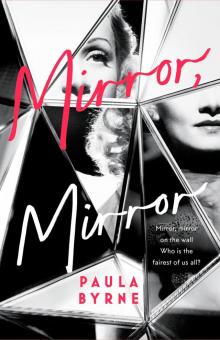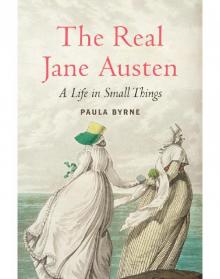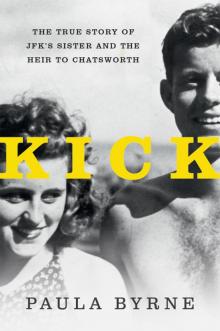- Home
- Paula Byrne
Mirror, Mirror Page 4
Mirror, Mirror Read online
Page 4
Nevertheless, there was talk over dinner about the New Deal. I liked the nice new president who seemed to be trying to help people who couldn’t afford food. The thought of being hungry made me feel ill. Mother had her own views on why the bad times didn’t seem to affect the motion-picture industry: ‘Nobody wants to pay for reality during a depression – that’s there for nothing.’
She glanced at the LA Times on the sideboard.
‘All those millionaires jumping out of skyscrapers just because they lost some of their precious money. All they had to stop doing was being so dramatic and get a job.’
I had eaten so much at supper that my new pink organza dress split its stitches. I heard it tear as I stretched for the salt cellar. My cheeks burned hot, and I could feel the sweat under my waist and my arms. Mother was too absorbed in her new friend to notice. I asked permission to leave the table, and scarpered. On the way to my bedroom, I played my daily game of dodging all the mirrors.
Back on the hot set, Mo was displeased with his star. He barked out his criticisms, called her ‘a fat cow’ in German.
‘Drop your voice an octave and don’t lisp.’
‘Look at that lamp as if you could no longer live without it.’
‘You are the Empress of Russia, not a German milkmaid.’
He made her descend a staircase forty-five times, over and over again, until she got it right. She did it without demur. Her velvet crinoline, so magnificent, was heavy, and the intense heat of the lamps burned onto her face, but she didn’t perspire, and never once complained of fatigue. She was so courageous. Didn’t flinch, despite the insults, and the pain etched on her lovely face. Over and over and over again. Up and down. Down and up. Such a soldier, such a queen. She had 10,000 men. He marched her up to the top of the hill, and he marched her down again.
But I was furious. Why was Mo being so cruel to my mother? What had she done that was so bad?
Bonne Nuit, Merci
That gorgeous tart-face and her garter belt launched a legend. But, more than this, Madou knew how to sustain a legend.
The reflection is of a movie star, but as I know all too well, she is also a woman who reads. Knut Hamsun, Selma Lagerlöf, Hugo von Hofmannsthal, and Friedrich Hölderlin. She worships Rilke; she knows, by heart, the writings of Erich Kästner. Very fancy, very modern.
According to her myopic critics, her acting talent isn’t supreme, her singing voice at best mediocre; she can’t dance for toffee. None of that matters a jot. She isn’t a celebrity; she is a Movie Star.
Here’s what I think about Moses von Goldberg. He saw her as someone who could take his direction, someone pliant, and ready to be moulded. Poppycock! I once heard him say, ‘I can turn you off and on like a spigot.’ Their first film together set the tone for their professional relationship: the clever, gentle, sophisticated, older gentleman dominated and humiliated by a crass showgirl. He would return to this theme over and over again.
Lola Lola had to be able to inspire obsession in an intelligent man, and that was exactly the quality he was looking for. Madou had it naturally. It couldn’t be faked. Eventually, inevitably, the girl destroys him. He should have known. But how could he have known that Professor Unrat’s descent into a grinning cuckolded stage clown would mirror his own doomed relationship?
As I say, he wasn’t counting on her intelligence. She was no statue, or puppet. When he deserted her, to save himself, she found her own way. He left Hollywood to make another picture, telling her that she’d be better off without him, that she would develop as an actress. But she was terrified of losing his light. Then she had an idea. She would steal his light.
For days, she watched Herr Direktor’s films in the projection room, over and over again. The others thought she was vain, but she was mastering his art. Light and shadow. Shadow and light. Another director was found, and on the first day of shooting she asked for her mirror.
She looks at him scornfully when he brings her a hand mirror. She points her finger, and I am wheeled in front of her: an eight-foot mirror on castors, dotted with light bulbs. She looks around the set at the crew, who are half mesmerised, half shocked. She is terrified, but, always the warrior, she sets about her job. She instructs the electricians to plug in the lights, and the grips to position me, so that she can see herself exactly as the camera will see her.
Then she makes her next move.
‘With your permission, gentlemen,’ she issues instructions to the electricians high up.
‘You on the right, come down, but slowly, there stop, set it.’
Then it is the turn of the small wattage lights, and then the all-important key lights. The spotlight near her face, but high, high above it, and a little to the right. She raises her finger, until she feels the exact amount of heat.
All the time, she stares at me, the mirror, and, like a miracle, shadows begin to appear. She is moulding, shading, highlighting. Then the face appears, in all its luminous beauty. A small butterfly shape flutters under the nose. She is ready for the camera to roll.
The crew, hardened and tough, begin a slow, appreciative, clap. She smiles: ‘Thank you, gentlemen.’
She has taken control of Joan Madou, the Movie Star.
Mo was vanquished, and he knew it. Vanquished by a mirror.
The Little Napoleon
A bad day at the studio.
The crew was pale. Nobody said a word.
‘Do it again.’
‘Why are you so incapable of doing anything correctly?’
‘Clear the set.’
This was the third time Mo had cleared the set. I waited outside in the blazing Californian heat while he screamed and shouted at her. Mother stayed silent.
This was the final scene. Madou was to ring the great cathedral bell, proclaiming herself the Empress of Russia. A huge steel crucifix had been attached to the end of the rope, which was weighted with sandbags, rigged onto a pulley. Every time she pulled the rope, using the full force of her body, the crucifix whacked against her inner thigh. She was required to ring the bell eight times.
‘Cut! Miss Madou, what on earth are you doing. You are not ringing for the butler at an elegant dinner in Paris, you are ringing the bells of the Kremlin. Do it again!’
On the fourteenth take, he cried: ‘Miss Madou. Try for a little expression on that beautiful face of yours. You are seizing a throne, not calling in the cows like an Austrian milkmaid.’
On the twenty-fifth take, her hands trembled and she began to perspire. The crew looked on in shocked silence. The tension in the air was unbearable. At that moment everyone on-set despised Mr von Goldberg.
On the fiftieth take, she could take no more. Her pale, lovely face was contorted, like the agonised screams of those gargoyles. She was not the Empress of Russia, triumphant, victorious, ringing the bells of her success. She was a hollow shell. And that’s the one he chose.
‘Cut! Print! Ladies and gentlemen, thank you.’
And with those words he left the set.
Nellie and I rushed to my mother. The metal edges of the crucifix had lacerated her inner thighs, blood seeped through her white long tights. Nellie begged her to see the studio doctor. Mother finally spoke: ‘No. Do not let anyone know about this. Not a soul. Bring me a bowl, towels and alcohol. Take me to my dressing room and lock the door.’
I could hardly bear to look as she poured the stinging liquid onto her cuts, but she didn’t flinch. Nellie and I bandaged her legs, and then we drove home in silence.
Back in the House of Mirrors, Mother prepared her goulash, opened the wine, and waited for Mo. He didn’t appear. At nine, she cracked and telephoned him.
When he arrived, she served him his food in the mirrored dining room. She was limping.
‘Is it good? Would you like more flat noodles?’
He looked at her in sorrow and shame. But he said nothing
.
‘It’s fine, Mo. You were right. You are always right. I was terrible in that scene. I am sorry for being so much trouble to you.’
I felt so hungry that my belly ached, but I excused myself and left the table. She would be angry with me for my appalling manners, and I knew I would pay for it, but at that moment I hated the little man. The Red Queen had made her final move. I didn’t know why or how my mother had won. I just knew that she had.
The Party’s Going with a Swing
As a rule, Madou dislikes Hollywood parties, mainly because of the low level of intelligence among her fellow actors. We have one of our infrequent ‘discussions’ about her profession. It is my belief that intelligent actors are seldom as good as unintelligent ones. That’s part of her problem. She’s too damn smart for this tawdry business.
‘My dear Joan, acting is an instinct. A gift that is often given to people who are very silly.’
‘Actors don’t ever grow up. I have no real desire to be an actress. To always play someone else, to be always beautiful, with someone constantly straightening out every eyelash. It’s a bother to me. I do it for the money.’
‘They’re made of papier mâché, creatures of tinsel and sawdust. You’re not an actress, my dear, you’re a personality. A star.’
‘How do I look?’
‘Charming. You’re a permanent pleasure to the eye.’
She puts down her hairbrush and clips on her diamond earrings. It’s time for the wrap party. One thing that can be said for Hollywood is that it really knows how to do a wrap party.
Madou adores her crew, and they adore her back. She admires their discipline, and their professionalism. She is generous to a fault. One time, a grip fell from a lighting rig, and damaged his back. Madou paid for all of his hospital bills, and sent packages of food to his family. If someone so much as sniffs around her, she fetches her thermos flasks of broth and advises on the best medications. Her wrap parties are legendary.
She is still angry with Mo, so she wants this party to be one to be remembered, insisting that it is hosted on the set of the Russian Imperial Palace. She is dressed to kill, in a Molyneux silk sheath and a white fur stole. Diamonds glitter at her earlobes and throat. She adds a ruby and diamond ring; a present from her latest conquest, knowing that Mo will notice and be furious.
One final glance, and she is off to the sound set. Once there, she asks one of the crew to wheel over her mirror. She wants me to see it all. What an enchanting spectacle! Mo’s huge banqueting table, which formerly held rotting fruit and platters of painted food, is now home to piles and piles of presents exquisitely wrapped in gold and silver, gleaming in the spotlights.
Trays of champagne flutes hiss and sparkle with amber bubbles. Party food lines the table; egg sandwiches, platters of sliced ham, and bowls of Russian potato salad. The showpiece is a magnificent cake depicting scenes from The Red Queen. There’s a snow scene of the entry into St Petersburg, complete with a gingerbread carriage frosted with ebony icing. Sugar-frosted pine trees glisten, and shimmery white chocolate snowflakes rest softly on the gingerbread window panes of the Winter Palace.
For the indoor scenes, marzipan gargoyles grin and leer, and sugar-crafted pillars are entwined with delicate garlands of pale edible flowers. In the middle of the creation is a sugar paste figure of the empress in the Imperial Palace wearing her white and gold wedding dress, and sitting on a white and silver-leaf throne. Naturally, this confectionary delight of a cake is too beautiful to eat. It exists merely to be worshipped, just like Madou herself.
The Child, I’m happy to say, doesn’t see me, but stares greedily at the platters of food on the never-ending table. It is time for the present-giving ceremony. Twenty-dollar gold pieces are sliced open to reveal paper-thin gold Patek Philippe wristwatches, with personal messages signed inside. These are given to the men, along with cufflinks, leather wallets, gold cigarette cases.
For the women, diamond clips from Cartier, some with rubies, sapphires, then patterned gold. Others are given handbags, scarves, and perfume. Lower down the line, waitresses are given signed photographs. Madou bestows every present with a handshake and a beatific smile.
Finally, she calls for Mr von Goldberg. He doesn’t want to be there. He is shifty, uncomfortable, so déclassé. He is despised by the crew. Madou kneels at his feet, and she kisses his hand reverently: ‘Without my master, my Lord of Light, I am nothing.’
He presents her with a sapphire and diamond cuff. But it’s me that she turns towards, twirling and twisting her slender wrist so the bracelet dances and gleams in the light. The Child, I see, looks on enviously. She is singularly unattractive. How did Madou give birth to such an unappealing child? No one will ever present her with fine jewels, fit for a queen.
I dare her to come closer, but she backs away and returns to the table. I regret to say that when she thinks no one is looking, she crams forkfuls of cake into her fat little mouth. Then she takes the sugar figure of the empress and bites off its head. She carefully places the decapitated figure back in its place on the marzipan throne.
The Woman One Longs For
Later that night, when the party was over, Mother and I went to the editing room with flasks full of beef tea for Mo. The studio was always a strange place at night. We drove through a silent New York street, a shabby Little Italy tenement, then BOOM, we turned a corner into a night shoot set in Victorian London. The commissary truck supplying sandwiches and hot drinks, lights blazing. On and on we went until we reached a three-storey building with blacked-out windows. The edit suite; Mo’s domain.
He showed Mother his best results. She was respectful, gracious. She knew that he would work long into the night, cutting and splicing, wearing his special white gloves. He seemed happy. He talked away as he worked. This is poetry, Joan. You are more than an actress, you are a dramatic encounter with light.
There are many encounters between my mother and Mo that I have edited from my memory, but this one remains a cherished moment. He was so proud of his work. I can remember his exact words.
‘You see, Joan, she has to become ruthless to compete with the men around her. She has been groomed for stardom by her mother, given a new image, presented to the public, and then become dehumanised, imprisoned by her own image. You see what she has become?’
If only my mother had taken the hint. Listened to Mo and his warning. Things could have turned out differently. For all of us. I wish I could turn back the clock to this moment, and tell her to stop, now before it’s too late.
Mo told her to stick around for retakes, and then she could depart for Europe, as she wished. Then there were sittings for publicity photos. Mother presided over the contact prints, retouching them with her wax pencil, shaping the nose, the hands (which she hated), the corners of the mouth, and when the product was perfect, she ordered dozens of copies for herself.
Mo left a message to join him in the projection room to view the rough cut. Mother was luminous. As Mo intended, the corpses and gargoyles served to enhance her beauty, the purity of her white skin. No one films you like I do, because no loves you as I do. Mother knelt at Mo’s knees, her golden hair fan-like against his trousers. He put his hand gently on her hair, his eyes sad.
In the morning, we stripped Mother’s dressing room, and then we packed for Europe. Mother’s clothes were carefully wrapped in tissue paper and stored in enormous steamer trunks, which looked like coffins. We packed the dolls. On the train we pulled down the blinds, locked the doors, took off her departure outfit, and packed it away in tissue. She removed her garter belt, then the expensive silk stockings, rinsed them and hung them carefully over towels to dry. A more comfortable bra was put on. She washed her face and brushed out the curls in her hair. Put on a navy PJ set and silk dressing gown.
‘Soon, I will drink real coffee in Paris, not the piss that Americans drink.’
I ate my last cheeseburger
and a slice of lemon meringue pie, and waved goodbye to the Big Green Lady with the torch, and I promised her that I would be back soon.
Mother was in a good mood when we boarded the Europa and entered our staterooms, which were already filled with huge baskets of flowers and bottles of champagne in ice buckets. The pungent scent of tuberoses and white lilac filled the air. The maid had already begun unpacking the coffins for Frau Madou; her tuxedos and evening gowns were hanging on padded hangers, and evening shoes and bags had been labelled and stored away.
Mother was chatting and laughing with the waiter and her steward. She was so relaxed, and I didn’t understand why until I realised that everyone was speaking in German. So that’s why she was happy! My heart swelled with love and pity. All those times when she was so edgy, it hadn’t occurred to me that she could be homesick.
We ordered room service: liver dumplings, cabbage rolls, frankfurters, red cabbage, sauerkraut, liverwurst on black bread. When she finally finished eating, she worked her way through the large pile of cables, while I sorted the flower cards. She picked out one to read.
‘Sweetheart, just listen to this: Darling I yearn for you (stop) it is one week today since your beautiful naughty hand opened a white rose (stop) how will I live without my love and my life.’
Mother was unimpressed: ‘Nebbish, that woman is getting too vain.’
Mo’s telegram pleased her more: I AM MADOU STOP MADOU IS ME STOP DO NOT FORGET TO COME BACK STOP
Then there was a cable from my father, telling Mother that she must not come to Berlin, and that they would reunite in Paris. But nothing could prevent her from bubbling over with happiness.
The captain had invited her to be his guest. We dined in the vast splendid dining room with its carved mahogany pillars, festooned with carved garlands and eagles. Everyone turned to stare when she made La Grande Descente and we walked to the table. Mother was resplendent in a low-cut gown of gold lamé that clung to her body as if she had been dipped in silky butterscotch.

 Mirror, Mirror
Mirror, Mirror Belle
Belle The Adventures of Miss Barbara Pym
The Adventures of Miss Barbara Pym The Real Jane Austen
The Real Jane Austen Look to Your Wife
Look to Your Wife Kick
Kick Perdita
Perdita Mad World: Evelyn Waugh and the Secrets of Brideshead (TEXT ONLY)
Mad World: Evelyn Waugh and the Secrets of Brideshead (TEXT ONLY)